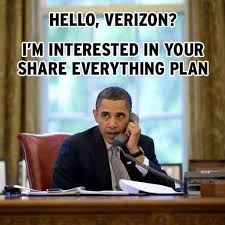How Secure Are We?
During his confirmation hearing
as the new head of the FBI, James Comey, told Congress that he
thought that the government surveillance of everyone's phone
conversations was justified because it was making us safe.
We have been hearing that for a
long time from a long series of government officials, many of them in
the military, who have told Congress not to worry about our
progressive loss of civil rights.
Anti-terrorism actions may make
us more secure against terrorism attacks. But there are many other
dimensions of safety which they do not affect at all. In many
respects, Americans are unsafe regardless of threats by terrorists.
Anti-terrorism acts affect only a small part of the security of
American citizens:
During their lifetime one in
six women are the victims of attempted or completed rape. 26,000
soldiers, men and women, have been sexually assaulted in the military
in the past year and it is quite obvious that, so far, the generals
and the admirals and the other big shots are unable (or unwilling?)
to deal with this problem.
The government taping phone
messages – only “meta-data” of course-- will not reduce sexual
assaults in the US.
Here are some other data about
how secure we are: The US incarcerates more of its citizens than any
other society. At any time, 37% of young black men are behind bars.
The New York police has, in
recent years, adopted an aggressive stop-and-frisk policy. 87% of
those stopped and frisked are black men. That is hardly being safe.
And now George Zimmerman has
been acquitted of the murder of Trayvon Martin.
Of the 1600 nursing homes in
the US, one third have been cited by state authorities for abuse of
elderly residents.
I could go on and on, with
reports about the treatment of migrant farm workers, of harsh
conditions for low wage employees, for inmates of mental
institutions. I could go on and talk about illegal home foreclosures,
about the troubles of the homeless, but the message would always be
the same.
It will take a lot more than
taping meta-data on phone messages to make many Americans safe. The
progressive infringement on civil rights by our government does
nothing to make large numbers of Americans more secure than they are
today.
(On the contrary, the current
extension of government power to invade the privacy of citizens is a
serious threat to each of us. But that is the topic for another
blog.)
But we need to ask a second
question: how insecure are we, how serious is the threat of terrorist
acts? The government claims that its infringement of civil rights has
allowed it to prevent many terrorist attacks and thus has saved
lives.
But here is the rub. We don't
know how many security threats the government actually uncovers and
manages to prevent. Because all of this stuff is supersecret. Were it
not for Edward Snowden we wouldn't even know about the taping of
phone calls.
We are deprived of civil rights
for our own good, and for our own good the government does not
provide any evidence for that. We need to trust big brother
government—for our own good.
But how can we trust a
government that lies again and again? In testimony before Congress
several higher-ups in the surveillance apparatus have in recent weeks
denied point blank, that the government is engaging in surveillance
of phone calls or of reporters. A few weeks later it emerged that
they had been lying.
Even the government knows that
citizens are not that gullible. So when someone lets out some secret
information, the government uses its extensive powers of arm-twisting
to make sure the whistle-blower is apprehended and punished harshly.
In the case of Pfc. Manning they made it very clear that they are
prepared to be brutal in stopping leaks. In the world-wide arm
twisting of countries considering giving asylum to Edward Snowden,
the same unflinching violence is manifest.
The government is quite clear
that it will stop at nothing in punishing those who break the veil of
secrecy. Would they have to be so harsh and vindictive if their
conscience were clear?
These snake oil salesmen are
armed and dangerous.
So if Comey or other government
officials come before Congress and boast that they have been
protecting us against terrorist threats, we have no way of telling
whether they are lying to us or not. Governments have consistently
lied to their people in order to justify military and other violent
actions they thought desirable. Pres. Lyndon Johnson invented an
attack on an American warship in order to justify escalating the
Vietnam war. President Bush invented weapons of mass instruction in
order to justify the invasion of Iraq.
We have good reasons to be
really suspicious of the assurance by government officials that they
are violating our rights is in our own best interest.
Before we let the NSA scandal
pass, we should insist that the government come clean on the actual
success of the counter terrorism efforts. Some people have been in
court and have been convicted. Have any of them been railroaded by
phony charges or perjured witnesses?
Obama should give Edward
Snowden the presidential medal of freedom and then follow Snowden's
example and open the books on the so-called war on terror.





